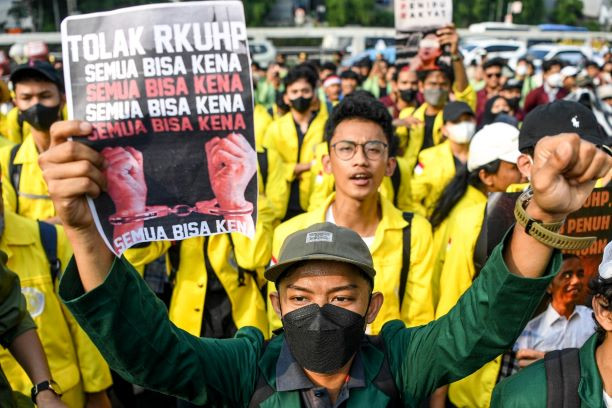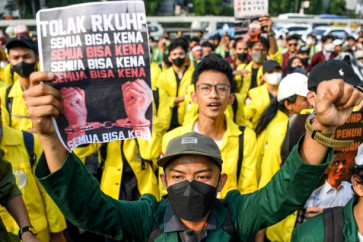Popular Reads
Top Results
Can't find what you're looking for?
View all search resultsPopular Reads
Top Results
Can't find what you're looking for?
View all search resultsCriminal Code: Balancing the paradox of expression
If citizens cannot speak freely about their leaders, they cannot fully engage in the lawmaking process, and implementing new legislation becomes an act of force met with popular resistance.
Change text size
Gift Premium Articles
to Anyone
F
or decades reformers have called to amend the Criminal Code, emphasizing its legacy of Dutch colonialism and failure to meet the needs of modern Indonesia. Yet citizens are wary of living under a Criminal Code that results from a process lacking transparency and public input.
At present, the only available draft of the amended code is the same version that sparked protest in 2019, and between it and recent statements by government officials, it is clear the draft still contains provisions rejected by the public, specifically banning “insults” to the president, legitimate government and state institutions.
These provisions threaten the freedom of expression guaranteed by the 1945 Constitution. Moreover, they undermine a fundamental value of democracy that is a prerequisite to the rule of law. If citizens cannot speak freely about their leaders, they cannot fully engage in the lawmaking process, and implementing new legislation becomes an act of force met with popular resistance.
Cutting corners in democracy will always jeopardize the rule of law. Prior rulings by the Constitutional Court have recognized this relationship. Decisions 013/PUU-IV/2006 to 022/PUU-IV/2006 annulled articles 134, 136 and 137 of the current Criminal Code, which regulate insults to the president. The court ruled that those criminal provisions followed a colonial legacy out of step with the principle of freely criticizing presidential performance.
Reviving these articles would mark a setback for the country’s hard-won democracy, and there is historically justified fear that regulations to silence presidential criticism would be abused.
Freedom of expression, of course, is not limitless. Digital communication presents new challenges for governments to maintain public order and combat misinformation, and unrestrained speech can become a threat to democracy when its aim is violence.
Lawmakers are always left with a paradox: Both protecting and limiting expression can harm democracy and the rule of law. Indonesia is not alone in wrestling with this question.



















